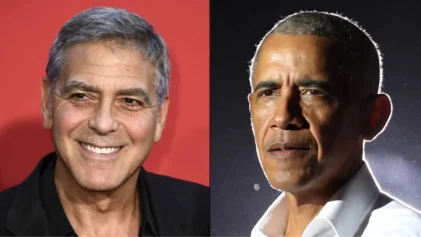African-Americans threw their support behind Barack Obama in record numbers to help send him to the White House in 2008, but four years of difficult economic times have weathered their enthusiasm.
The president still figures to garner the lion’s share of the black vote in his re-election bid against Republican challenger Mitt Romney, but getting his most loyal constituency out to vote in anywhere near the same numbers could be the difference in what figures to be an extremely close presidential race come Election Day.
It’s for that reason that the Obama campaign has recently begun a concerted push to again galvanize the African-American community into again heading to the polls en masse on Nov. 6.
Obama claimed 95 percent of the black vote in a historic 2008 election to become the nation’s first African-American president.
But doing so again won’t be without challenges as many in the African-American community question whether they are better off today than they were four years ago.
“The last four years for me, have been difficult,” said Angela Collins, a mother of six, in an interview with CNN. “They’ve been hard.”
Collins has a 12-year-old and a 16-year-old still at home, with two more kids in college and two more grown ones out on their own.
The Los Angeles area hairdresser says business is way down, forcing her family to cut back to just bare necessities.
She says she’s disappointed President Obama didn’t deliver on his promises to improve the economy and education.
She’s hardly alone as 11 percent of likely African-American voters echo her sentiments about Obama’s first term. The president still enjoys 90 percent support among African-Americans, but he can’t afford to have any losses among his most loyal supporters.
“Obama has clearly lost some support among his base,” says author, political analyst, community leader, and activist Earl Ofari Hutchinson. “He had strong support among women; that’s down a little bit from where it was in 2008. I think the one element of his base that’s remained pretty steady and consistent and overwhelmingly supportive is African-Americans.
Hutchinson attributed some of the disillusionment in the area to the fact that, when President Obama comes to Los Angeles, it’s usually for a fundraiser with the rich. He has failed to connect with his core supporters in the black community.
Others, however, within the African-American community have expressed their strong displeasure with Obama’s approval of gay marriage.
The problem puts Obama in a quandary of sorts. His campaign has made a strong push for the women’s vote, the gay vote and the Latino vote, but only now is focusing on his base within the African-American community.
The president desperately needs a strong black turnout on Nov. 6 if he is to win a second term, yet he feels he must court their affections very carefully for fear scaring off white voters.
It was for that reason that the White House quickly denied a San Francisco Chronicle report that said Obama spoke last weekend via conference call with a collection of black preachers – including his former preacher Jeremiah Wright – in the hopes of getting more African-Americans to the polls.


